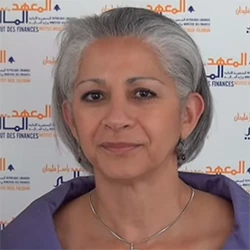This blog has been co-authored by Yolanda Tayler and Guenter Heidenhof.
 We have all heard about the social, economic, and political issues currently facing the Middle East and North Africa (MENA) region. Of these challenges, the demand for better governance is among the most important issues. Therefore, MENA countries must adopt innovative solutions and clearly communicate the impact of their efforts on the topic of governance in a comprehensible way to its’ citizens.
We have all heard about the social, economic, and political issues currently facing the Middle East and North Africa (MENA) region. Of these challenges, the demand for better governance is among the most important issues. Therefore, MENA countries must adopt innovative solutions and clearly communicate the impact of their efforts on the topic of governance in a comprehensible way to its’ citizens.
The rules and institutions governing government spending through public contracts, known as the “Public Procurement framework,” are actually at the core of the governance agenda. Corruption scandals, embezzlement by greedy politicians, conflicts of interest (when a contract is awarded to a good friend), or abandoned or malfunctioning projects which do not deliver the required public service because of a contractual dispute, are all emblematic issues that constantly deteriorate the image of public action among civil society.
As an activity for public good that receives a great deal of visibility (as well as scrutiny), public procurement is at the core of many decisions by governing entities, which aim to produce concrete results (e.g., roads are built, hospitals supplied with necessary vaccines, and schools erected). It is also inextricably linked to many governance areas such as transparency, accountability and participation as it impacts the business environment and the delivery of public services. Because of these natural links, it is of great importance for well-functioning democratic regimes (and absolutely crucial for the new regimes in MENA) to tackle these issues by establishing a public procurement system based on sound governance principles.
Previously viewed as an obscure topic related to legal and financial issues, public procurement is now emerging as an area that can allow citizens to assess their governments’ performance and effectiveness. Some public procurement frameworks in the region are already showing results following the enactment of new public procurement laws and regulations which are paving the path for increased social accountability. For example, many countries have launched public websites to gather and share information on procurement laws, regulations, guidelines, and public contracts. Even in countries where it was not traditionally acceptable to challenge administrative decisions, new complaint mechanisms are forming to allow the bidders to challenge the award of contracts. Anti-corruption measures and related sanctions against individuals and companies are becoming better defined. When feasible, e-Procurement implementation is being explored as a way to speed up processes to reduce arbitrary decisions.
However, governance in public procurement remains disparate among MENA. While public institutions have and continue to display enthusiasm for better efficiency and streamlined spending, the previous reluctance to address initiatives related to transparency and accountability is lessening in some countries and being reappraised in others. With the Arab Spring, the climate and appetite for governance has dramatically changed the political landscape in the region. It has created an environment where ministries, public entities and local governments can no longer ignore civil societies’ increased awareness of this important area of public procurement.


Join the Conversation